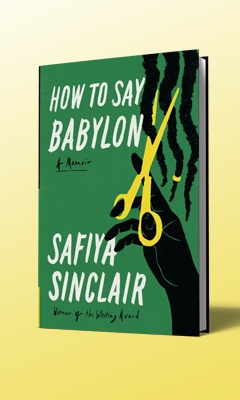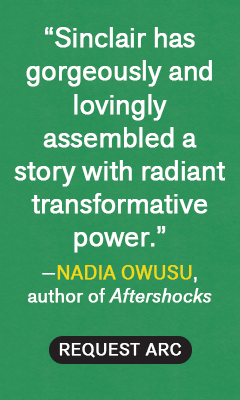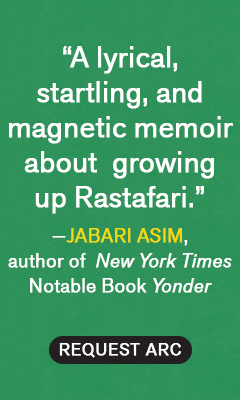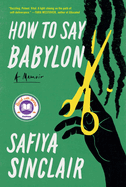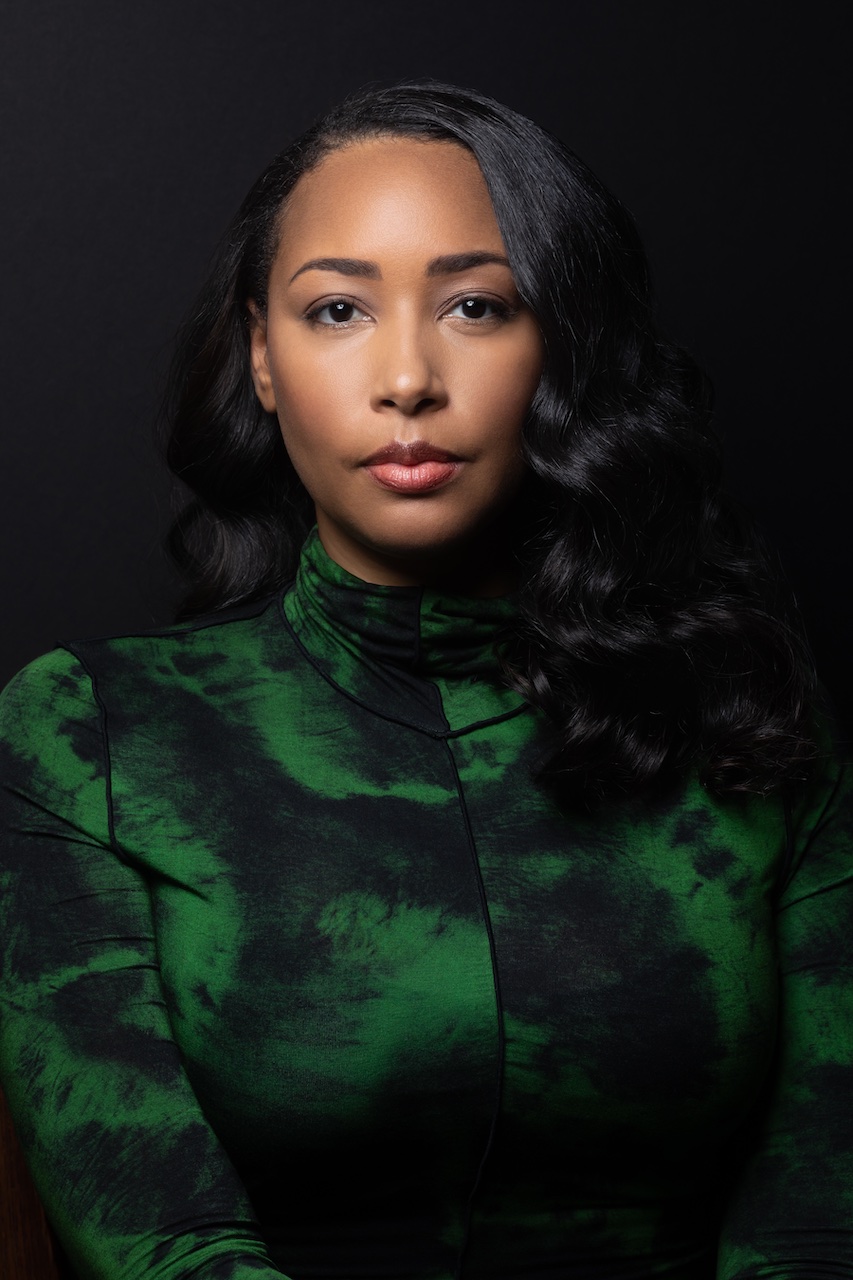How to Say Babylon: A Memoir
by Safiya Sinclair
Safiya Sinclair, author of the award-winning poetry collection Cannibal, once again dazzles readers with How to Say Babylon: A Memoir, a pulsating history of the author's Rastafari upbringing, probing the wounds that formed her as well as the anti-patriarchal sensibility simmering at the emotional core of who she is today.
The eldest of four children, Sinclair was born and raised in Montego Bay, Jamaica, to Djani, a fervent young Rasta musician from the countryside, and Esther, his ethereal, intelligent wife. Her parents both had "shoulder-length natty Congo Bongo dreadlocks" and started their family while living at Esther's childhood seaside home. The Caribbean Sea became the grounding force in Safiya's peripatetic childhood. The sea's calming sounds and rhythms, and her hometown's tropical landscape, exert a commanding influence on her work. Sinclair's enigmatic father, with his magnetic personality, beautiful voice, and "his dreadlocks falling like dark vines," was the troubled root of their family. He had become no different than the systemic powers that he railed against: imposing through violence and verbal abuse his own absolute rule over them.
How to Say Babylon opens on a calamitous night, a night when years of violence at the hands of her strict father culminate in the adolescent Sinclair, at the "lonely cusp of womanhood," finally letting her lifelong fear of him give way to fire and refusing to shrink anymore after years of diminishment under his shadow. Instead of meekly resisting his efforts to mold her into a voiceless, obedient girl with no dreams of her own, who would one day make the perfect wife for a Rastaman, Sinclair boldly declares her independence, rebuking her father and standing firm against the fury he subsequently unleashes on their terrified family.
Arriving at a relatively early stage in Sinclair's literary career, How to Say Babylon is flavored as much by the shimmering promise of the future as it is a backward gaze at the author's history. Sinclair knows that if she wants to forge ahead with a life of her own making, she must first reconcile with the past, including her father, and "write the ache into something tangible." She probes why her parents chose to impose such a severe and uncompromising interpretation of the Rastafari faith on their children, and skillfully interrogates their motives with a maturity and grace remarkable for someone whose childhood trauma is in the not too distant past, and which still reverberates through her and her siblings' lives.
In her artistic hands, Sinclair's memoir and the raw truths it reveals read like an intriguing literary novel, with family, friends, and Montego Bay itself brought to life by her animated writing. How to Say Babylon is also a historical drama, shedding light on the rise of an Afrocentric, decentralized Rastafari faith in a Jamaica confused about its post-colonial identity. For Djani, as for most Rastas, Rastafari was their "livity"--their calling or way of life, encompassing culture, home, family, politics, and spirituality--and reggae was a religious experience. He made a meager living playing this holy music for tourists at popular resorts, while forcibly keeping his wife and children shielded from the wiles of "Babylon"--Western society and culture--which he considered dangerous and corrupt.
While the family's financial and emotional stability were elusive, they led a simple, wholesome life filled with nature walks and sibling play, far removed from the lifestyles of the wealthy girls Sinclair attended school with as a poor scholarship student. She stood out with her shoulder-length dreadlocks, and not in a good way. Poverty drove the family from one rented house to another, while Esther offered tutoring to make ends meet. Esther, with her sharp mind and poet's sensibility, single-handedly pursued educational excellence for her children, certain that only a university education could change the trajectory of their lives. Unable to shield them from their father's excesses, Esther empowered them through unlimited access to books, and introduced Sinclair to poetry at a time when the girl needed a lifeline. Sinclair expresses gratitude for her mother's "quiet shelter, the steady tide of her tranquility." Her father warned them of Babylon and made their world smaller, while Esther showed them Zion, the promised future, in the form of educational opportunities that her enterprising children grasped with both hands.
Crafting poetry became the author's solace, and she embraced it with a fiery passion. As her writing reached new heights, she gained the strength to stand up to her father, eventually shedding her dreadlocks as a symbolic rejection of his authority. Sinclair published her first poem to critical acclaim at age 16, and has confidently announced herself as a poet ever since, her voice a battle cry against colonial and patriarchal oppression. With How to Say Babylon, she is "trying to change the fate of the next Sinclair girl in the retelling." Sinclair's beautiful niece, Cataleya, is the hope that propels the author forward, determined as she is to share with her the rewards of female empowerment, education, and the self-esteem she worked so hard to build for herself: "So, she who comes next would never have to know the fire. So, she who comes next would always know herself."
How to Say Babylon closes with a soulful affirmation of writing as Sinclair's way back to her family and herself. Readers will marvel at the tenderness that defines the author's approach to her troubled childhood, and the strength with which she embraces a future certain to be gilded by the extraordinary imagery of her poetry. --Shahina Piyarali



